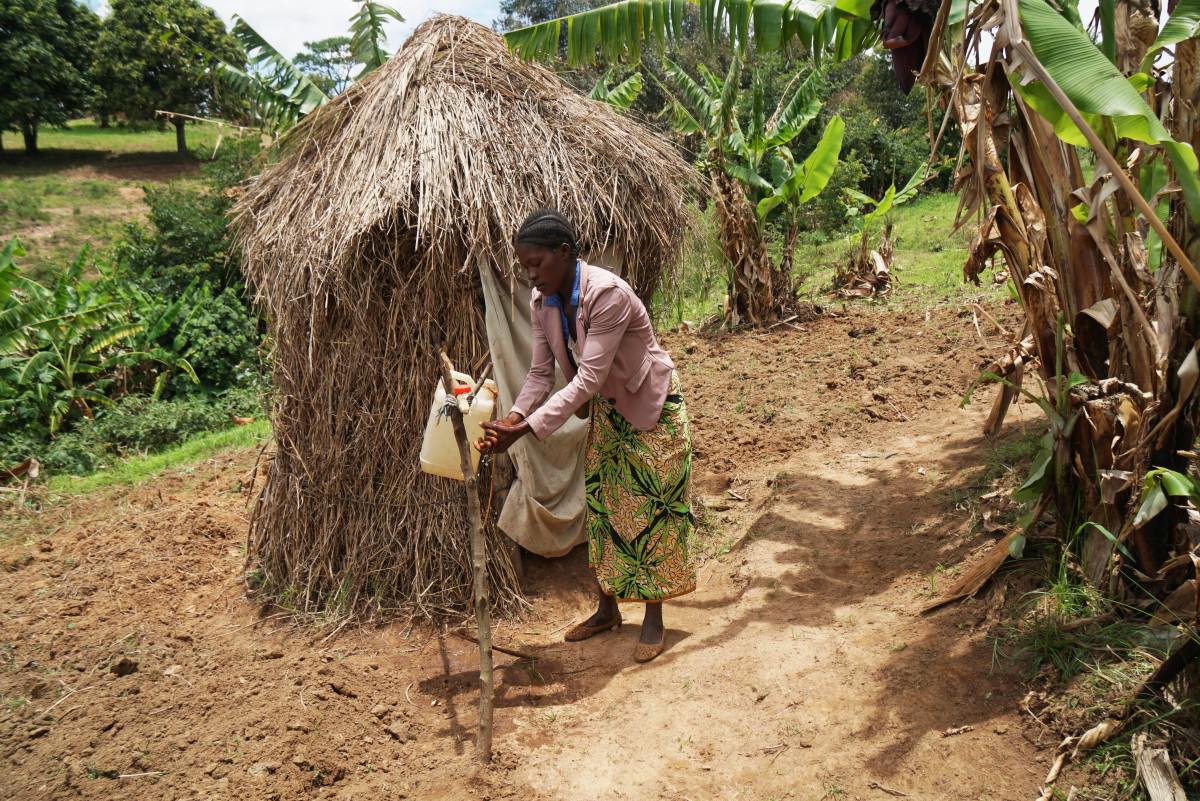Let's make the invisible visible! - International Toilet Day 2022🚽 🧼
Published: Nov 15, 2022 Reading time: 3 minutes Share: Share an articleThe world is facing a hygiene crisis. The inadequacy of hygiene systems, including toilets, spreads waste into rivers, lakes, and soil. Contamination of water sources occurs right under our feet. Safe sanitation solutions protect groundwater from pollution and people from disease. Everyone should have access to a toilet that is built in such a way that it does not destroy the surrounding environment.

World Toilet Day this year focuses on the negative impacts on groundwater caused by poor sanitation. Inadequate sanitation systems spread faeces that contaminate groundwater. This problem is invisible and occurs in the world's poorest and most marginalised places. Groundwater is the primary source of drinking water—fresh water—which is essential for consumption and also for the resilience of agriculture, industry, and ecosystems. Groundwater is vital to us.
- 3.6 billion people in the world do not have access to safe toilets. People without access to safe toilets often have their health damaged and their environment polluted. Every day, 800 children die from acute diarrhoea linked to poor hygiene and the consumption of contaminated water (WHO 2019). In addition, diseases spread by contaminated water sources also cause malnutrition, which threatens the proper development of children.
- At least 2 billion people worldwide use contaminated drinking water sources . (WHO/UNICEF 2019)
- Almost half of the world's schools do not have hand washing facilities with soap and water for their students (WHO/UNICEF 2020).
Accessible toilets in schools also make education more accessible to girls and increase their attendance rates. Being able to access education gives girls more opportunities in the labour market and the chance to break out of the cycle of poverty.
A clean and safe toilet ensures health, yet 40% of the world's population does not have access to toilets. At People in Need (PIN), we improve hygienic conditions in the countries where we work, not only by building toilets but also by educating and training people in personal hygiene.
Ma Yee Yee (name changed for security reasons) adds: "Thanks to the new latrines, I have changed my hygiene habits. Thanks to the availability of clean water, I wash my hands before and after going to the toilet. Thank you for providing us with safe latrines".
We can also repair toilets thanks to the Real Gift, where people can buy toilet certificates and contribute to the WATER and HEALTH assistance programs as part of the Real Aid fundraising. (Link in Czech: https://www.skutecnydarek.cz/p/zachod/)
An example of these programmes is People in Need in Angola’s Community-Led Total Sanitation project, which focused on the sanitation of entire villages, the construction of new toilets, the training of residents on how to build or repair toilets, and training, thanks to which the residents adopted essential hygiene habits.
"We used to build toilets, but we didn't know the real meaning and how to build them properly," says João Sabino from the village of Chivanda in Angola.
People in Need supports the construction of toilets in Ethiopia, Angola and Myanmar. Furthermore, as part of WASH (water, sanitation, hygiene) projects, it focuses on distributing hygiene aid in other countries, such as Syria, the Democratic Republic of the Congo and Iraq.

